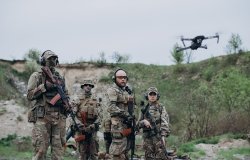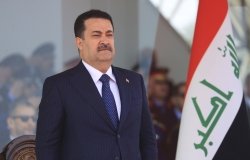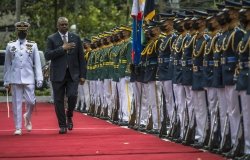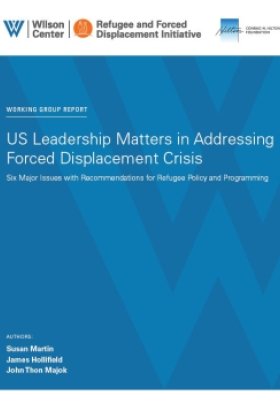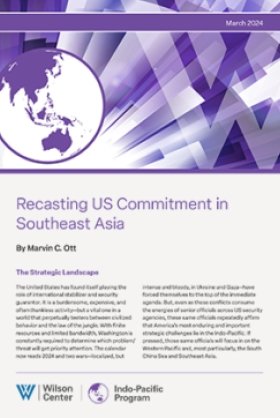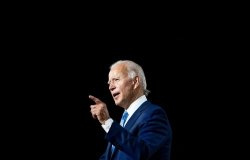Director's Forum: A Small Country vis-a-vis a Global Power: The Relationship between Serbia-Montenegro and the United States
Svetozar Stojanovic, Distinguished Serbian philosopher, writer and political advisor, former Wilson Center Fellow
Overview
Small Country vis-a-vis a Global Power:
The Relationship between Serbia-Montenegro and the United States
Director's Forum with Svetozar Stojanovic
November 6, 2003
In this Director's Forum which inaugurated the annual Serbian-American Lecture Series,
Svetozar Stojanovic, distinguished Serbian philosopher, writer and political advisor, and former Wilson Center Fellow, placed Serbia-Montenegro in the context of a world paradigm influenced by "apocalyptic" weapons and a powerful, yet vulnerable United States.
Stojanovic began his discussion with an emphasis on the division of the world between a relatively wealthy one billion people and an extremely poor and disadvantaged four billion. Stojanovic said that these divisions fuel an alienation of the majority of humanity—most significantly in terms of cutting edge technology and scientific advantages and from control of potentially catastrophic devices and weapons. According to Stojanovic, the possibility that biological, chemical, or cyber weapons may be used by the alienated or even accidentally set-off warrants an "international anti-apocalyptic force" to oppose these threats and further, to attempt to close this gap by supporting human rights and democracy. He saw the U.S. as part of the leadership for such a force, but believed that current American unilateral action does not contribute to the mitigation of these apocalyptic threats. Stojanovic emphasized the need for multilateralism.
He further noted a new contradiction inherent in the United States after 9/11: the U.S. is the global superpower but is at the same time, extremely vulnerable. The key question on his mind is how the United States can take "anti-apocalyptic measures" while not hurting its democracy.
Regarding Serbian-U.S. relations, Stojanovic emphasized that the recent history of tensions, sanctions, and war in the 1990s has been an aberration and that relations between the two nations had always been strong since Serbian independence in the 19th century. While September 11 took the focus off the Balkans, the U.S. remains interested in Serbia-Montenegro because of its ties with Muslims, its relative strength in the region, and the general need for stability in the Balkans. He also noted the importance of educating the American public regarding Serbian issues as well as world issues in general, because, as Stojanovic pointed out, Americans elect leaders that "de facto" dominate the world, thus Americans need to be better informed about global affairs.
Stojanovic also proposed a new world view that is based on ethnic and cultural ties instead of political boundaries. He pointed out that the key to resolving conflicts in the Balkans is to have an understanding of the various ethnic groups there. He further noted that in the 1990s, the U.S. decided to let the Balkans be divided based in part on these ethnic boundaries. Yet, Americans believe that post-Saddam Iraq "should be preserved at all costs within its present borders," although the country is just as disparate and fractious as was the former Yugoslavia consisting of three distinct ethnic groups---Kurds, Shiite and Sunni Muslims, who do not get along without tight internal control. At the heart of many of his arguments was the desire to see consistent principles applied among similar cases which would provide the basis of a "new ethics, a new international law, and a new international politics."
Hosted By

Global Europe Program
The Global Europe Program is focused on Europe’s capabilities, and how it engages on critical global issues. We investigate European approaches to critical global issues. We examine Europe’s relations with Russia and Eurasia, China and the Indo-Pacific, the Middle East and Africa. Our initiatives include “Ukraine in Europe” – an examination of what it will take to make Ukraine’s European future a reality. But we also examine the role of NATO, the European Union and the OSCE, Europe’s energy security, transatlantic trade disputes, and challenges to democracy. The Global Europe Program’s staff, scholars-in-residence, and Global Fellows participate in seminars, policy study groups, and international conferences to provide analytical recommendations to policy makers and the media. Read more
Thank you for your interest in this event. Please send any feedback or questions to our Events staff.
